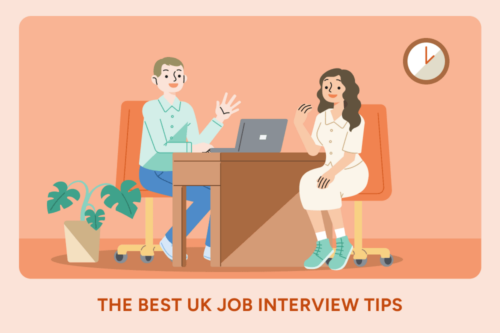The interview process for a job can be stressful, and one question that often catches candidates off guard is “What are your salary expectations?”.
Coming up with an answer on the spot isn’t easy. How do you avoid coming across as greedy while making sure you’re paid what you’re worth?
We’ll teach you the key to responding to interview questions about your salary expectations and provide you with multiple sample answers to help you ace your interview.
Why do employers ask about your salary expectations?
Employers ask about your salary expectations because they want to know if hiring you falls within their budget. By asking before they extend a job offer, employers avoid spending time and effort on candidates who will turn the offer down because the pay is too low.
Asking what salary you expect to receive also helps employers gauge whether you’re applying for the right reasons. If it’s an entry-level position but you ask for an executive salary, it might be interpreted as you only being in it for the money.
How to answer “what are your salary expectations”?
Here are four tips to help you nail your answer to “what are your salary expectations?”:
Do your research
Before going into a job interview, research the average salary for your target role. When you have an idea of what employees with your level of experience typically make in the same role, you’re less likely to undervalue yourself.
By setting realistic expectations for your salary you also show the interviewer that you’ve prepared for the interview and are serious about the position, so give an answer similar to the one below:
Based on my research, the average salary range for a wedding photographer in this area is £30,000-£35,000. As someone with more than five years of experience and a well-balanced skill set, I’d be comfortable with a salary within that range.
Average salaries vary from state to state, so keep this in mind when conducting your research.
Don’t give a number that’s too high (or low)
If you ask for a salary that’s significantly higher than the market rate, you risk getting rejected because of unrealistically high expectations. Taking steps to ensure you’re getting fairly compensated for your work is great, but you don’t want employers to think you’re asking too much.
On the other hand, you need to be careful not to give a number that’s too low. If employers see an opportunity to save money, they’ll likely take it, so you need to know your worth.
Additionally, responding with a number that’s on the lower end could lead your interviewer to believe that you lack the experience required for the role or aren’t confident in your abilities.
You can also ask the interviewer questions about their budget. If you’re told that they can’t afford to pay what you asked, suggest that you can negotiate other benefits, like the candidate does in this example:
Thank you for being transparent about the budget you have in mind for this role. My primary focus is finding a job where I can make a meaningful impact and grow my skills, so I’m open to considering a wide range of compensation packages. I’m sure we could come to an agreement.
Respond with a range
When asked “what are your salary expectations?” in the UK, it’s better to give a salary range instead of a specific number. By giving a range you reduce the risk of giving an answer that’s either far below or above the employer’s budget.
Responding with a range also makes you come across as agreeable and willing to negotiate. Leaving a good impression on the interviewer is key, and how you answer this question can say a lot about you. Employers are going to be more inclined to offer you the job (as well as a better salary) if you appear to be a reasonable, well-informed candidate.
Here’s a good example:
I understand that the final compensation package will depend on several factors. However, given my expertise in the marketing field, I’d be happy with a salary that falls somewhere between £37,000-£42,000.
Justify your answer
Being asked about your salary expectations isn’t just a chance for employers to figure out if they can afford to hire you. It’s also a chance for you to sell yourself and highlight your top qualities as a candidate.
To make a strong case for why you deserve a certain salary, you need to justify your answer. More specifically, you should reiterate what makes you a perfect fit for the job.
Remind the interviewer of the skills, qualifiations, and experience listed on your CV. This will prove to employers that you understand what is needed to succeed in the role, and that you exceed those requirements.
Here’s an example of a smart answer that spotlights the candidate’s most relevant qualities:
I believe that my excellent track record and deep understanding of financial modeling and analysis will make me a valuable addition to your team. Ideally, I’d be looking for a salary range between £50,000-£60,000 per year, but I’m open to negotiating once I learn more about my specific responsibilities.
Salary expectation answers
Here are three sample answers to “What are your salary expectations?”:
If your salary negotiations don’t work out and you return to the job market, try using an online CV creator and a cover letter builder to optimise your application for landing a job that pays well. And remember to look for expert interview tips online.




